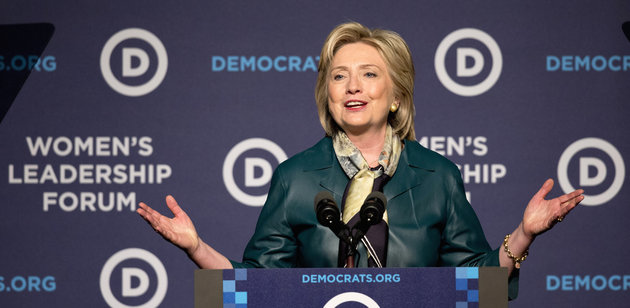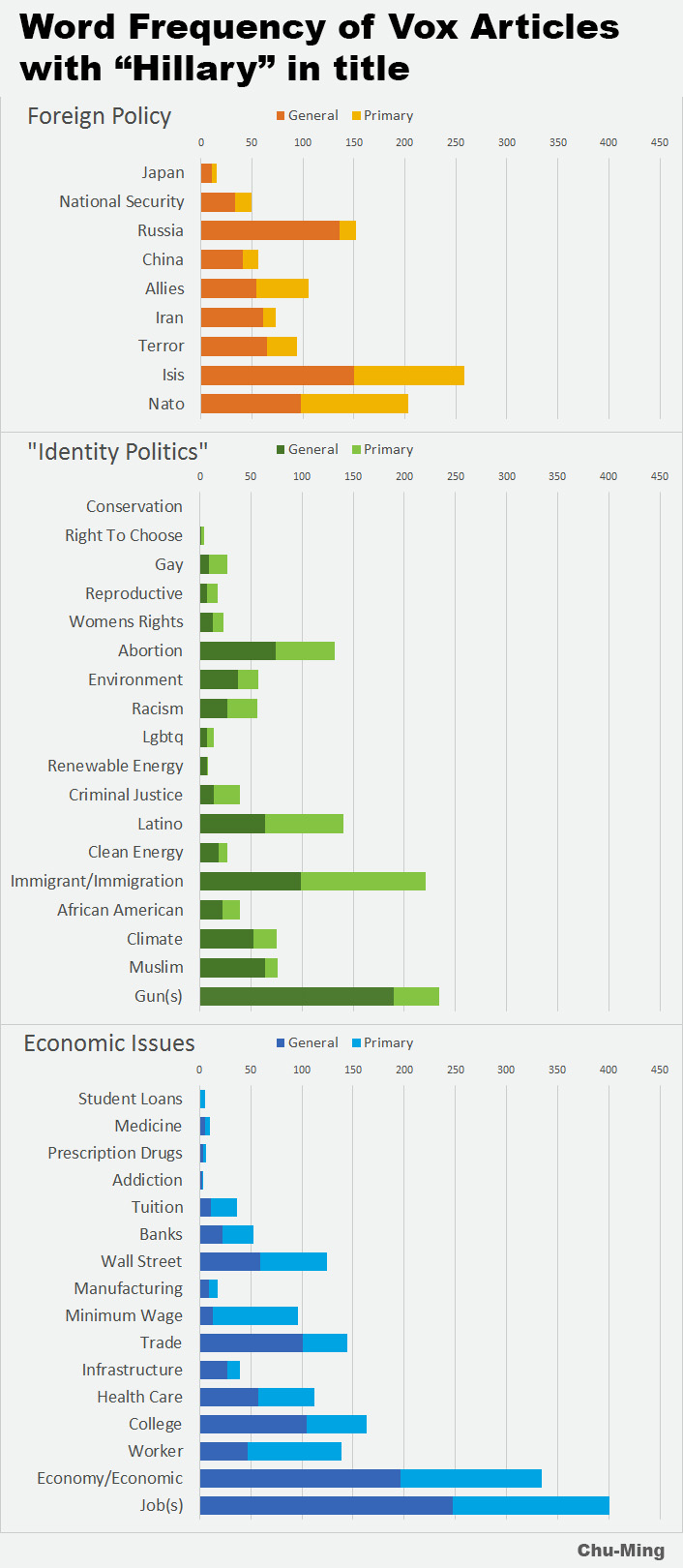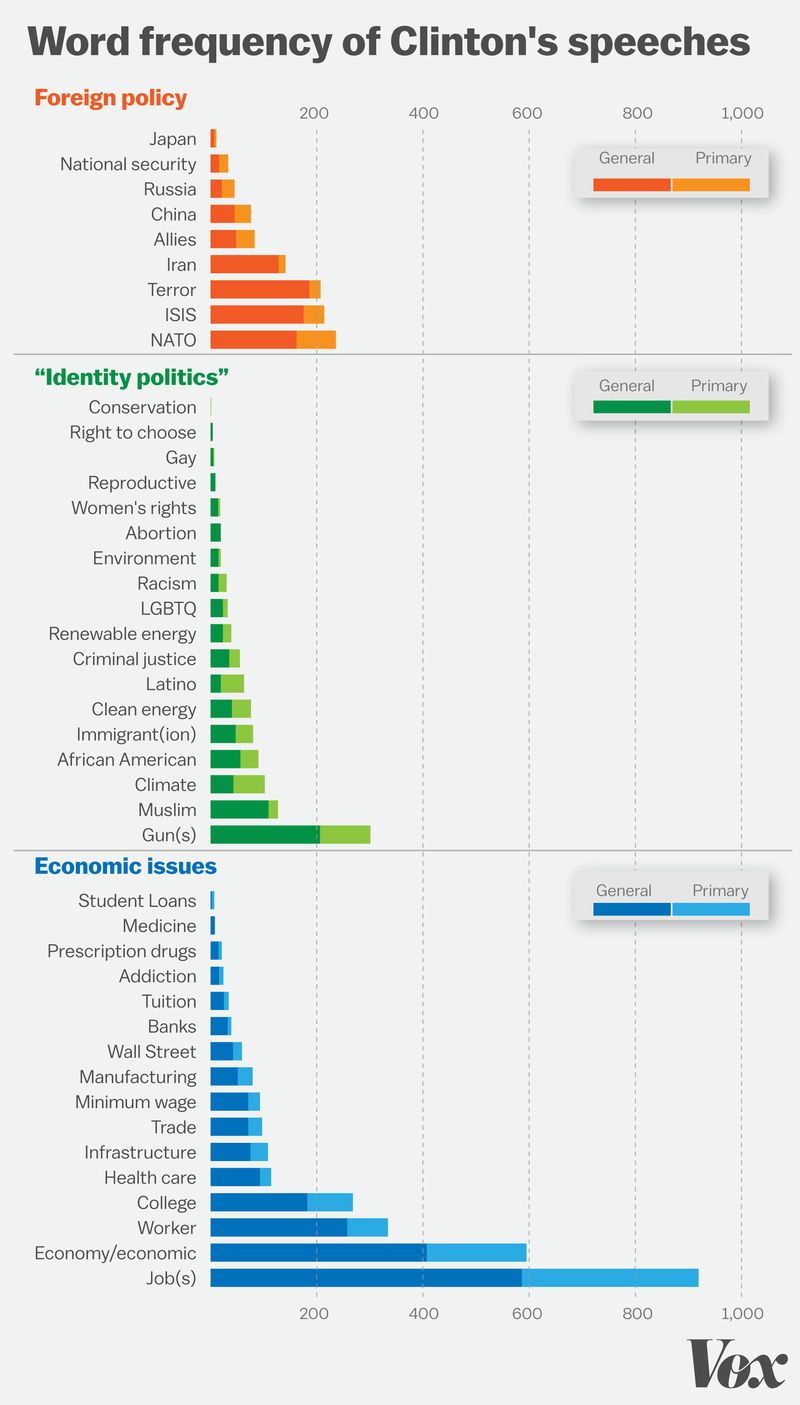A few days ago I read an article from Vox about Hillary Clinton. In light of her presidential defeat, people are offering up theories as to why she could never seem to find appeal amongst the masses. Her approval ratings dipped ever since she left her job as the Secretary of State, and it only worsened over the course of her presidential campaign. The article points to a common criticism people have – that Hillary Clinton ran on a campaign of identity politics, pandering to special-interest groups while shoving aside the woes of the disillusioned working-class voters.

The author then reveals a surprising statistic. By compiling all of Hillary Clinton’s campaign speeches and doing a word-frequency analysis, he found that the most common words in Clinton’s speeches were in fact, not about identity politics, but about economic issues.
I was perplexed. If Hillary Clinton spoke mostly about economic issues, then why does it seem like all we hear about in the media are abortion rights and immigration laws? Could it be that the media is skewing its representation of the presidential candidates? After all, such rhetoric sells. Identity politics are the centerpiece of viral, click-baity headlines which can be only be described as ‘outrage porn’.
To test this hypothesis, I scraped Vox for all the articles it published containing the word “Hillary” in the title and “Clinton” in the body, from the start of the Democratic primaries to the end of the general election. I then did a word-frequency analysis for the same words and in the same order as the graphic from the original article. Here are the results.

For comparison, here is the original graphic published in the Vox article.

Just by taking a glance at the two graphs, one can immediately see a difference in Vox’s coverage of Hillary Clinton versus the issues she talked about. To its credit, Vox does mention ‘Economy’ and ‘Jobs’ the most. However, if you look at the section under ‘Identity Politics’, you can see exactly which topics Vox is over-representing. ‘Abortion’, ‘Latino’, ‘Immigrant/Immigration’, and ‘Gun(s)’ are all keywords which stand out when compared to Hillary Clinton’s campaign speeches. In the other two sections, ‘Russia’, ‘ISIS’, ‘Wall Street’, ‘Minimum wage’, and ‘Trade’ are the keywords that are over-represented. With the exception of ‘Trade’, the rest are all keywords which divide opinion just as much as identity politics do.
I didn’t write this just to rag on Vox and point out its hypocrisy in publishing an article that downplays identity politics. I wrote this because I feel that news outlets need to be aware of their own biases when writing stories. I consider myself a moderate, and I have been feeling increasingly alarmed by what I am seeing in the media. It seems as though each media source is focused only on pushing their respective agendas, neglecting stories and omitting details that do not fit their rhetoric.
There has been a media frenzy recently about so-called ‘fake news’ and disinformation, leading to a witch-hunt to weed out these unscrupulous news sites. As always, this simplistic view does not reflect a much more nuanced reality. The mainstream media we consume all come with concealed biases that are much harder to detect and much more pervasive than ‘fake news’.
Confucious once said “中庸之为德也,其至矣乎”. That roughly translates to “The golden mean is the highest virtue”. If we want to bridge the divide that seem to so consume us, we need to realize our own biases and look to the other side of the aisle.